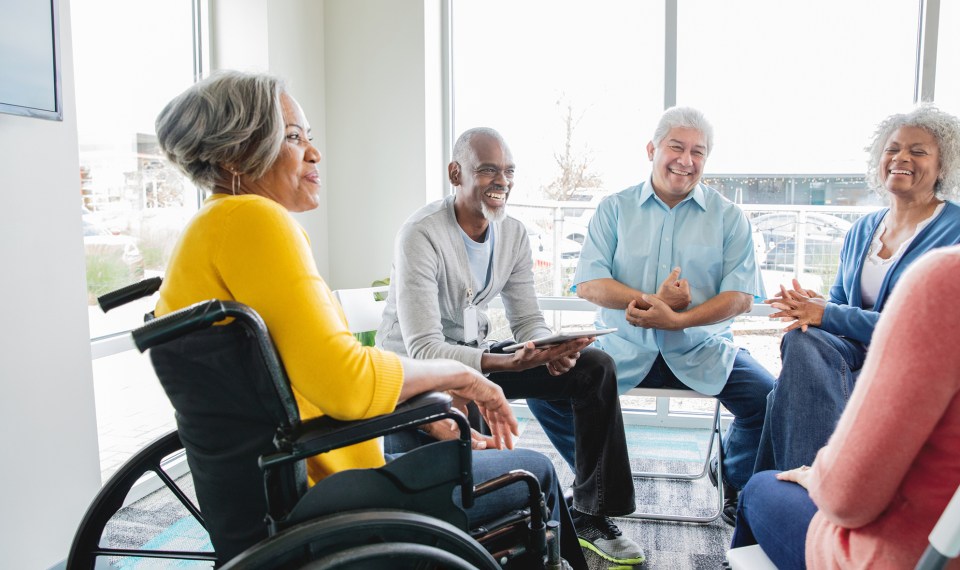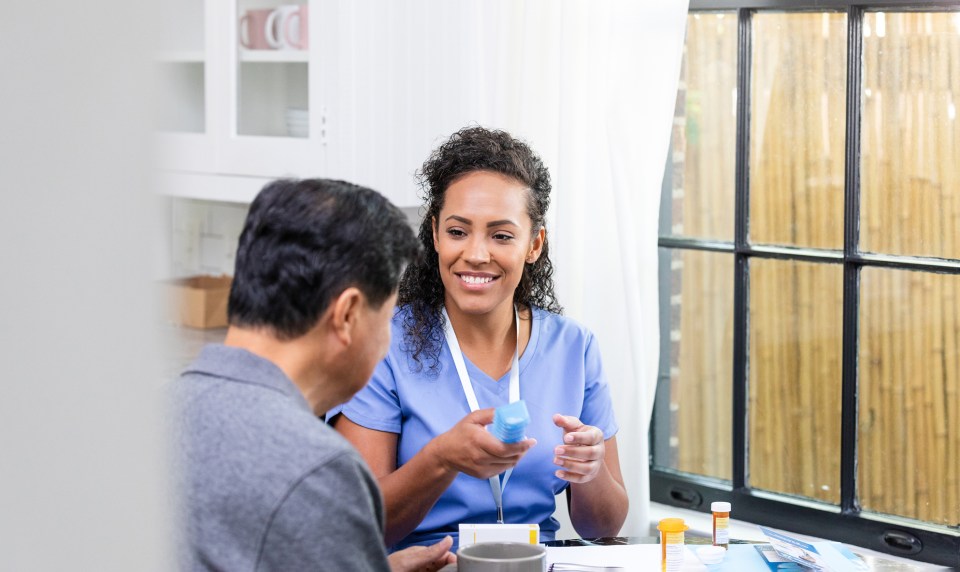I was first exposed to community support groups in the mid 1990s when I was asked to speak to our hospital’s stroke support group about speech therapy services.
At that time the support groups were coordinated by an associate in the psychology department. A few years later, things changed. The husband of a former patient became the volunteer group leader of the Parkinson’s support group, but eventually he had to step aside as group leader due to his wife’s decline. It was difficult to find a volunteer to succeed him.
The group suffered in the transition. However, knowing how impactful these groups are to patients and their loved ones, our hospital administration wanted to continue to offer support to the Parkinson’s community, but with more consistent leadership.
This scenario is all too familiar for anyone who has tried to start and sustain a support group, but that doesn’t have to be the case.
A colleague and I stepped in to fill the void and provide more consistent leadership for our support group in 2015, and since then, we’ve learned some strategies to help sustain them.
Benefits of Support Groups
Support groups bring together people who are going through similar experiences. They provide the opportunity for members to improve understanding of their health condition, share personal experiences and coping strategies and learn about available resources.
Another benefit of support groups is helping people to stay motivated to manage chronic conditions and gain a sense of control and empowerment. Support groups can help members feel less lonely and isolated.
They are not just for patients either. Caregivers can also benefit from support group participation. The groups provide a social outlet with peer support. Dealing with a loved one with a chronic medical condition can be overwhelming. Support groups encourage caregivers to take care of themselves.
Why SLPs Make Effective Facilitators
Speech language pathologists and support group facilitators share similar skill sets. Strong communication skills, including active listening, are necessary in both roles. Advanced preparation, time management and motivating learners are important in conducting therapy sessions and support groups.
Being familiar with healthcare professionals, awareness of community resources and having the ability to navigate the organization also are helpful assets.
Consistency is Key
It is vital for support groups to have consistent meeting times and locations to encourage participation. Our stroke support group meets the third Wednesday of the month, and our Parkinson’s support group meets the last Wednesday of the month.
Both groups meet from 1 p.m. until 2:30 pm. This is considered the optimal time for support group meetings as it is late enough in the day for members to get ready and travel to the site. It also allows time for Parkinson’s and other medications to take effect.
Meetings finish early enough not to overlap with rush hour.
Find a Convenient Location
We meet in a room that is adjacent to the front lobby, so members do not have far to walk. We have escort wheelchairs available if needed. There also is plenty of free parking in the hospital lots.
The hospital provides refreshments that are served beginning at 12:30. Most participants come early in order to have a snack and socialize before the meeting begins.
Select a Format
Support groups can have different formats. The support groups at Encompass Health Rehabilitation Hospital of Harmarville feature a speaker on a topic of interest to members and their caregivers each month.
Presentations are about an hour with time afterward for questions and discussion.
Speakers are chosen based on a theme. For the Parkinson’s group, theme and speakers are focused on “Living Well with Parkinson’s Disease.” I look for presenters who focus on “Staying Healthy after a Stroke” for the stroke support group.
Often speakers may do the same or a similar presentation for both groups, as the audiences are different. Many of our speakers are our Encompass Health colleagues from physical therapy, occupational therapy, nursing and psychology.
Building Relationships
Hosting community support groups has led to relationships with other organizations that serve stroke survivors and those with Parkinson’s disease.
The partnership between Encompass Health and the American Heart Association/American Stroke Association provides access to educational materials for our members. Likewise, our relationship with the Parkinson Foundation of Western Pennsylvania has led to speaking opportunities at other support groups and conferences and the opportunity to provide a virtual exercise program on Zoom.
Encompass Health Rehabilitation Hospital of Harmarville is committed to offering support groups as part of our continuum of care and as a resource to the community. Our groups are free and open to the public.
Using these strategies, we’ve not only been able to serve our patients, but we’ve also been able to serve our community.
The content of this site is for informational purposes only and should not be taken as professional medical advice. Always seek the advice of your physician or other qualified healthcare provider with any questions you may have regarding any medical conditions or treatments.



